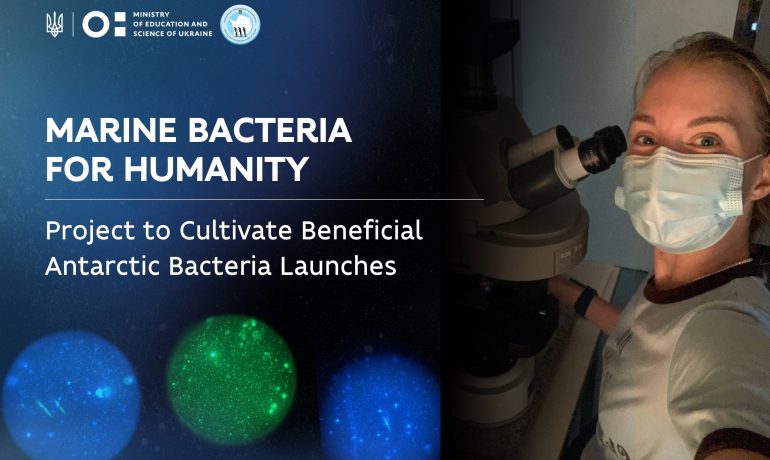Ukrainian scientists will search for beneficial compounds in Antarctic marine bacteria in order to use them for the needs of humanity in the future.
These studies will be carried out in the new Horizon Europe project, which NACS has joined. It is called Unlocking the hidden treasures of aquatic extremophiles: sustainable development of industrially relevant novel active biomolecules (EXPLORA).
Aquatic extremophiles are marine bacteria from the Southern Ocean. They love extreme conditions and survive at long periods with low temperatures and often significant ultraviolet radiation.
Scientists will try to figure out how they do it.
First of all, as part of the project, marine bacteria will be selected in the area of Akademik Vernadsky station – in the water area of the Wilhelm Archipelago near the western coast of the Antarctic Peninsula.
The following stages will be:
- DNA analysis of selected samples, determination of their composition and functional characteristics
- creating a database of promising microorganisms that can potentially synthesize beneficial compounds with antifreeze and antioxidant properties
- selection of optimal conditions for growing and cultivating bacteria
- study of the genome of bacterial cultures in relation to genes encoding beneficial properties.
The most promising bacterial cultures will then be sent to laboratories, where the microorganisms will be multiplied in bioreactors to synthesize and isolate beneficial compounds.
Scientists hope that the obtained compounds will be potentially useful for pharmaceuticals, cosmetology, medicine, etc.
Thus, in the future, scientific development can turn into new products beneficial for humanity.
A separate highlight of the project is the improvement of technologies for the selection of microorganisms in extreme environments, since this is often a complex process.
In collaboration with partners, it is planned to develop a robotic system for collecting samples in the waters of the Southern Ocean. The system will be tested at Akademik Vernadsky station. This will make the selection of microorganisms more accurate and standardized, and will reduce human involvement in this process and its potential impact on the process.
We remind you that the National Antarctic Scientific Centre has attracted the most funds from the EU’s Horizon Europe program among all Ukrainian scientific institutions.
Reference: The EXPLORA project is being implemented by NASC together with 12 partners from Spain, Portugal, Switzerland, the Netherlands, Germany and Bulgaria.
It started on December 1, 2024 and is designed for 48 months.
The materials were provided by Mariia Pavlovska.


